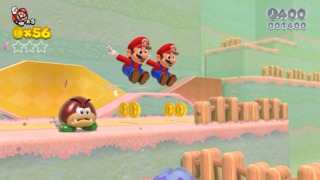Video games are good for you, may help manage dyslexia
New Oxford University research shows playing action games can help train the brain's attention system.

New research from Oxford University indicates that playing action games can help people better manage dyslexia, a common learning disability that makes it difficult for people to read, write, and spell. As reported by NPR and FOX News, though many programs that aim to help people with dyslexia focus on words and phonetics, the Oxford researchers say dyslexia is actually rooted in attention.
Therefore, approaches to helping those struggling with the disability should focus on training the brain's attention system, which video games can do quite well.
"These video games require you to respond very quickly, to shift attention to one part of the screen to another," experimental psychologist and lead study author Vanessa Harrar said. The study, "Multisensory Integration and Attention in Developmental Dyslexia," was published this month in Cell Biology.
One well-known side effect of dyslexia is a person having difficulty looking at an image and then shifting their attention to a sudden noise. In the study, researchers tested the reaction times of 34 people by asking them to press a button every time they heard a sound, saw a dim flash, or experienced both.

The half of the group that had dyslexia had slower reaction times compared to the control group--and this makes sense, Harrar said.
But when it came to reacting to a visual cue following a sound cue, the dyslexic group had similar reaction times compared to the control group. Researchers said this might be because the sound cues came from the same point of origin as the visual cues.
This conclusion led the Oxford researchers to suggest that video games could be helpful for dyslexic people. Specifically, these games would help them become accustomed to switching more easily between audio and visual cues.
"The idea is to train with some kind of video game that trains the eye movements to different locations to add in that multisensory component,” Harrar said.
It's important to note, however, that researchers have only hypothesized so far that video games could be useful; they have never actually tested to see what kind of effect video games might have.
Got a news tip or want to contact us directly? Email news@gamespot.com
Join the conversation